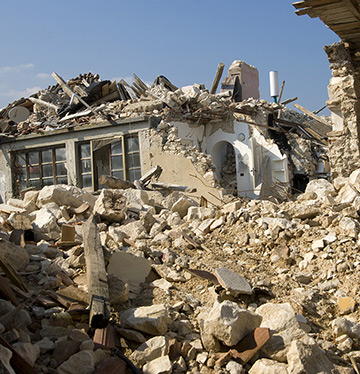Earthquake safety
An earthquake can occur any time without warning. Here are some of the many ways you can minimize the risks to you, your family and home when an earthquake hits.
- Prepare an emergency kit with at least a three-day supply of non-perishable food, water and other basic items.
- Consider taking these steps to reduce earthquake hazards in your household.
- Make sure your natural gas water heater is securely strapped to a wall stud.
- Be familiar with the location and operation of the shut-off valve on your gas appliances. If your appliances do not have a shut-off valve, have one installed.
- Know how to shut off your gas service in an emergency.
- Use flexible pipe connections to connect all gas appliances to the house line that goes to your meter.
- Stay away from downed power lines. Call us at 1-888-225-5773 if you see one.
- If you smell natural gas, see a broken gas line or hear gas escaping, leave the area immediately and call 911. Then call PSE at 1-888-225-5773.
Do not turn off your gas service if you do not smell, see, hear or suspect that gas is escaping. Doing so will deprive you of energy you may need to cope with the emergency. In a post-disaster environment, there may be significant delay in PSE getting to your home to turn the gas back on.
If you do turn off your natural gas service, do not attempt to turn it back on yourself. Call us at 1-888-225-5773 to get it turned back on.
Customers who prefer that their gas shuts off automatically in an earthquake can purchase a seismic shut-off valve. These valves are positioned on the customer’s side of the gas meter to automatically stop the flow of gas into a structure. The valves are sensitive to shaking, and if not installed properly, may inadvertently shut off gas due to vibration sources other than a strong earthquake. Whenever gas is shut off, appliances and piping should be inspected before service is restored. PSE does not install these valves, nor do we provide maintenance service. We will, however, inspect appliances and piping and reset the valve after a shut-off.









